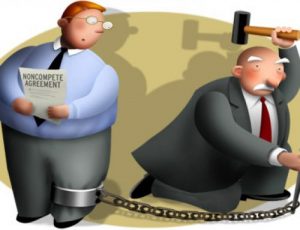SEPTEMBER 2017 NO. 133

“It’s all about personality and chemistry.”
For the 30 years that I’ve been in the search and recruiting business, that’s what nearly all of our many clients have told me. That it’s all about personality, chemistry, and cultural fit when it comes to selecting and hiring people.
But that doesn’t mean relevant technical skills and experience don’t count. Finding the right fit for your organization is paramount because while (some) skills can be taught, basic personality traits are inherent and don’t really change.
Want to try something fun? Explore your own personality at the end of my newsletter. An interesting and engaging experience you might also want to make available to candidates as well. Offered by Traitify, it’s fast and free– and they even claim it’s backed by “real science.”
WHEN MAKING A HIRING DECISION, WHAT MATTERS MORE: RELEVANT SKILLS OR PERSONALITIES?
If you answered “skills,” then you are in the minority.
According to a survey of professionals in a range of industries—a year or so back—78 percent of respondents identified personality as the single-most desirable quality in a worker. In fact, initial skill set was the thing that mattered least to these employers.
It’s not surprising that so many employers find it critical to hire workers who mesh with their cultures and values. Yet many of them are, frankly, terrible at assessing the very quality they deem most important. (Source: Harvard Business Review, “When Leaders are Hired for Talent but Fired for Not Fitting In,” June 14, 2017.)
If companies routinely fail to make good choices for the most high-profile jobs in the organization, can we expect that they’ll somehow perform better filling lower level positions?
Don’t think so.
WHY WE ROUTINELY GET IT WRONG
Why are we so bad at recognizing people’s personalities?
We humans habitually trust what we refer to as our “guts” when it comes to making decisions big and small. We opt for what feels right, what coheres with our previous experiences. The bad news is that we’re often wrong. Perhaps worse, we have an excessively high level of confidence in our own processes.
The renowned psychologist Daniel Kahneman devotes his critically acclaimed best-seller “Thinking, Fast and Slow” to this issue, to the “puzzling limitation of our mind: our excessive confidence in what we believe we know, and our apparent inability to acknowledge the full extent of our ignorance and the uncertainty of the world we live in.”
This “over-reliance on intuition at the expense of scientifically valid selection tools,” as the authors of the Harvard Business Review article put it, can have a devastating effect on companies. For example, 95% of companies say they’ve made bad hires, due in part to how they make decisions. (Source: Brandon Hall Group, “Avoiding the Negative Impacts of a Bad Hire.”)
Yes, an interview can give us a clue about a candidate’s personality. But the potential for false positives and negatives runs high, given that some talk a better game than they play, while others don’t accurately represent themselves due to nervousness induced by the pressure of an interview.
THE COST OF BAD HIRES
You might be tempted to shrug at this news. We all win some and lose some, right? Sure, but hiring badly is massively expensive, so it’s vital to win a lot more often than you lose.
There is no line for it on a typical profit-and-loss spreadsheet. But the evidence is conclusive that low employee retention is one of the biggest drags on corporate profitability. In fact, studies have calculated that replacing one employee can cost anywhere from 50% to 400% of the departing employee’s annual salary. (Source: ERE Media, “What Was Management Thinking? The High Cost of Employee Turnover.”)
HOW TO GET IT RIGHT
Understanding all of this, many forward-thinking employers are tuning out their guts and tuning in to psychology-backed assessments to uncover candidates’ personality types and traits. With the results of a test that can be completed in just minutes on a mobile device, employers can gauge how applicants will mesh with their company culture.
Psychology tests can reveal all sorts of relevant information about applicants, such as:
- What type of work ethic do they have?
- What is their level of emotional intelligence?
- Are they action-takers, planners, or visionaries?
- Are they reliable?
- Where do they fall on the big five personality dimensions of openness, conscientiousness, extraversion, agreeableness, and neuroticism?
Such tests also can be customized to meet a company’s specific needs and wants.
BOTTOM LINE
Both skills and personality matter to the success of a new hire, and the best-performing organizations recruit for both. But as for the answer to our initial question on which is more important, I’m in the majority: I think finding the right fit for your organization is paramount because while skills can be taught, personality traits are inherent and don’t really change.
For ideas on how to leverage “proven science” to build your organization, start by exploring your own personality. Try this assessment. The “test,” “Backed by real science,” the company says, could be a fun and engaging experience for applicants. And whether they fit your organization or not, they’ll walk away with self-discovery and an appreciation for your employment brand!
Source: Glassdoor
|
We’re Out to Disrupt the Executive Search Firm Industry.
Introducing Our 10% Flat Search Fee. The Lowest In the Industry.
No Matter What the Position. Click Here for More Information.
|
RECENT ISSUES

ARE NONCOMPETE AGREEMENTS ENFORCEABLE?
July-August 2017
 YOU’RE FIRED!
YOU’RE FIRED!
June 2017
 COURAGE: THE DEFINING CHARACTERISTIC OF GREAT LEADERS
COURAGE: THE DEFINING CHARACTERISTIC OF GREAT LEADERS
May 2017
|
ABOUT LES GORE
Les Gore, founder and managing partner of nationally recognized, Boston-based Executive Search International has more than 25 years of search, recruiting, career development and human capital experience. We are one of the leading boutique executive search firms recruiting senior-level leadership talent– in all functional areas– for clients in E-Commerce, Consumer, Business, Industrial Products & Services, Omnichannel Retail, Digital, Data & Marketing (B2C-B2B), Financial & Professional Services, Non Profit, Small Business, and the Investment and VC community. |
|
I SPECIALIZE IN RECRUITING
TOP LEADERSHIP TALENT
FOR CLIENT ORGANIZATIONS RANGING FROM MULTINATIONAL CORPORATIONS TO SMALL, ENTREPRENEURIAL BUSINESSES.
|
